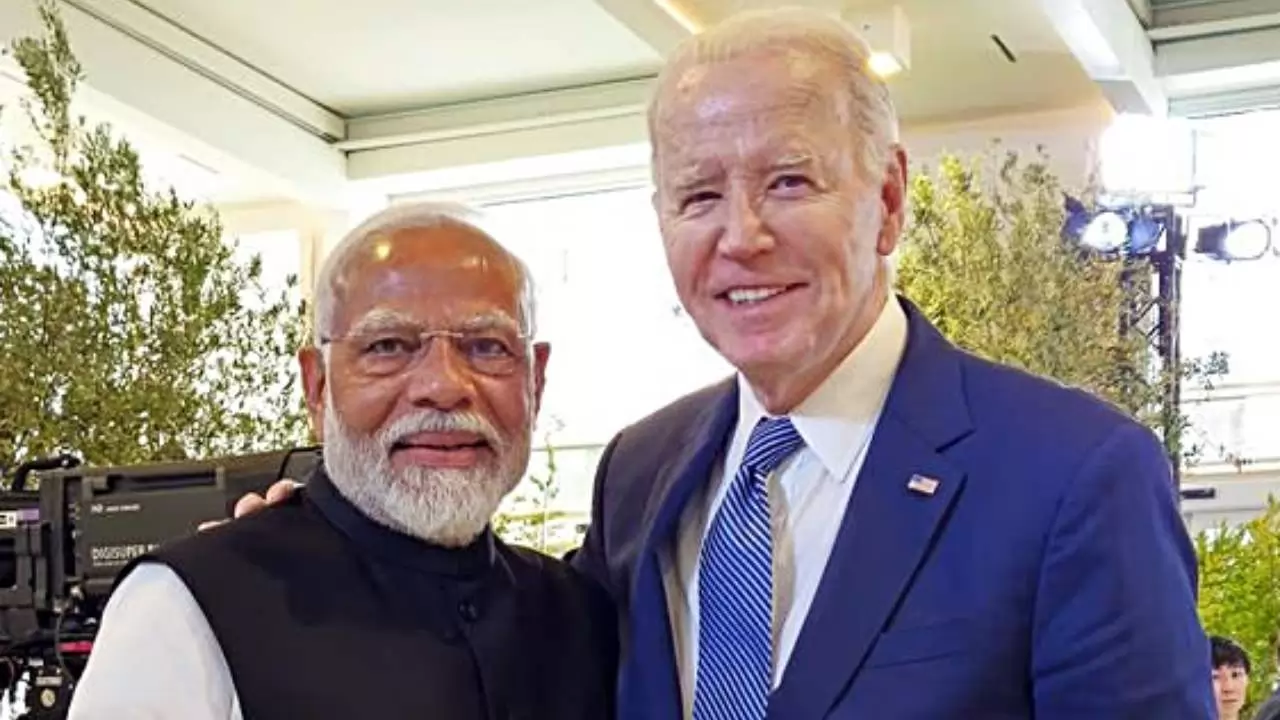
PM Narendra Modi, President Joe Biden (ANI)
Washington: In a significant development, the White House met with a group of Sikhs sympathetic to the Khalistan movement just hours before Prime Minister Narendra Modi is set to arrive in the United States for a three-day official visit. During the meeting, the White House assured attendees of "protection from any transnational aggression on its soil."
The White House reaffirmed its commitment to "protecting American citizens" from potential harm within US borders, amidst rising concerns that both Canada and the US are providing refuge to Khalistani separatists.
The Khalistan separatist movement is banned in India, with several affiliated groups having engaged in terrorist activities over the decades. While the US has not officially commented on providing shelter to such groups, Canadian officials have described their actions as part of "freedom of speech."
In response to this situation, Indian External Affairs Minister S. Jaishankar stated, "India respects and practices freedom of speech, but this does not include the freedom to support separatism or threaten foreign diplomats." He emphasized the importance of background checks on individuals residing in any rule-based society, questioning the implications of allowing individuals with dubious documentation to remain in the US.
This meeting took place shortly before PM Modi’s arrival for the Quad summit in Delaware and to address the 'Summit of the Future' at the United Nations General Assembly in New York. It was attended by notable figures, including Pritpal Singh from the American Sikh Caucus Committee and representatives from the Sikh Coalition and the Sikh American Legal Defense and Education Fund (SALDEF).
Pritpal Singh expressed gratitude to senior federal officials for their vigilance in safeguarding Sikh Americans. "We will hold them to their assurances to do more to protect our community. Freedom and justice must prevail," he stated in a social media post.
This marks the first occasion that the US National Security Council has convened with Sikh separatist supporters, and it is notable that the initiative for the meeting came from the White House.
In a related move, US Congressman Adam Schiff recently introduced the 'Transnational Repression Reporting Act 2024.' This legislation mandates the Attorney General, in collaboration with relevant federal agencies, to report incidents of transnational repression affecting individuals in the US.
SALDEF has voiced its support for this bill, framing it as a strong statement against violations of the constitutional rights of Americans. The group has also openly backed Khalistani terrorist Hardeep Singh Nijjar, blaming India for his death.
In a separate but related development, Khalistani terrorist Gurpatwant Singh Pannun filed a civil lawsuit against the Government of India and National Security Adviser Ajit Doval. The US District Court for the Southern District of New York has issued summons in this case, naming key Indian officials, including former R&AW chief Samant Goel and R&AW agent Vikram Yadav.
Gurpatwant Singh Pannun is a designated Khalistani terrorist born in Khankot village near Amritsar. He has claimed responsibility for multiple terror incidents in India and publicly threatened Prime Minister Modi during his visit to Assam in April 2023.
Pannun founded the Khalistani separatist group Sikhs for Justice (SFJ) in 2007, which was banned by India under the Unlawful Activities (Prevention) Act in 2019 due to its anti-India activities. In 2020, he was officially designated a terrorist. Pannun holds dual citizenship in the US and Canada and currently resides in the US, where his banned organization continues to operate.





Copyright © 2025 Top Indian News
